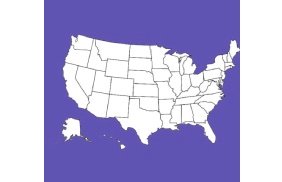After fifty years, the federal government finally acknowledged that marijuana has medical value and is not as dangerous as heroin. As first reported by the Associated Press and confirmed by Marijuana Moment, on April 30, 2024, the Drug Enforcement Administration (DEA) announced it will be rescheduling marijuana from Schedule I to Schedule III under the Controlled Substances Act (CSA). This will not legalize state-level adult-use and medical marijuana markets, but it is the most significant federal marijuana reform in the history of the United States. We knew the DEA was close to an announcement as early as June 2023, but this remains an astounding development for anyone following the cannabis industry.
How Has the Process of Rescheduling Marijuana Worked?
The marijuana rescheduling process began in October 2022 when President Joe Biden requested the Department of Health and Human Services (HHS) reevaluate marijuana’s status as a Schedule I substance. In August 2023, HHS provided its recommendation to move marijuana from Schedule I to Schedule III. Schedule I substances are deemed to have no currently accepted medical use and include substances such as heroin, LSD, and MDMA. Schedule III drugs include ketamine and Tylenol with codeine.
Will Rescheduling Legalize Marijuana?
Moving marijuana from Schedule I to Schedule III will not legalize the use, production, manufacturing, sale, or possession of marijuana outside of the tightly regulated parameters of the CSA. State-legal markets are not in compliance with the CSA, under which the entire lifecycle of production is strictly controlled and overseen by the DEA and the Food and Drug Administration (FDA), and which further requires that drugs be manufactured by federally licensed operators and then distributed only by pharmacies and health care professionals. In contrast, state-legal medical and adult-use marijuana programs are currently overseen by state-level regulatory bodies.
Additionally, the standards for federal drug production and state marijuana production are vastly different. On the federal level, compounds included in drugs must be isolated and refined for clinical use. Drugs come in many forms, but each different form must contain consistent components every time. While marijuana products are tightly regulated, they come in many forms, and although ingredients and cannabinoids must be disclosed and tracked, states do not require the same precision as the federal government.
For more information, see our previous posts on the legal impacts of rescheduling:
- From Schedule I to Schedule III: Potential Shift in Marijuana’s Legal Status
- Rescheduling Marijuana: Understanding the Legal Impacts
How Will Rescheduling Marijuana Impact Marijuana Taxation?
States tightly regulate marijuana cultivation, processing, distribution, and sales. It is unclear whether or not federal policy regarding these activities will change. What we do know is that Internal Revenue 280E will no longer prevent marijuana businesses from taking deductions. This is because the text of 280E is limited to the trafficking of Schedule I and Schedule II substances and does not extend to Schedule III substances:
No deduction or credit shall be allowed for any amount paid or incurred during the taxable year in carrying on any trade or business if such trade or business (or the activities which comprise such trade or business) consists of trafficking in controlled substances (within the meaning of schedule I and II of the Controlled Substances Act) which is prohibited by Federal law or the law of any State in which such trade or business is conducted. (Emphasis added).
The Internal Revenue Service will likely provide guidance on marijuana taxation in the coming months. For now, we know that the text of IRC 280E does not apply to the trafficking of Schedule III substances.
When Will Rescheduling Take Effect?
Rescheduling is not going to happen immediately. There are requirements under the Administrative Procedures Act (APA) that must be observed. Going forward, we expect rulemaking to occur over the next few months.
To reiterate, the move to reschedule will take time to implement, and as of this writing, marijuana remains a Schedule I substance. For more on the timeline for rescheduling, see our previous post on the topic: What is the Timeline for Rescheduling Marijuana?
Bottom Line
Rescheduling marijuana from Schedule I to Schedule III under the CSA will not address many of the issues that plague the cannabis industry. For example, it will not resolve – or even provide clarity – with respect to a wide variety of operational, financial, or legal issues faced by the industry, such as banking, insurance, bankruptcy, or interstate commerce. As stated above, marijuana operations legal at the state level are not compliant with the CSA, and under federal law, Schedule III substances still fall within the scope of the CSA. It is unclear whether federal agencies like the FDA will change their enforcement policies around marijuana. So far, the FDA has largely left state-regulated marijuana businesses alone.
If you currently operate in the marijuana space, or are considering entering the space, it is critical that you are actively tracking relevant developments in light of rescheduling. We will continue to report at the greenleafbrief.com on the process as these matters develop and analyze and provide answers with respect to how federal policies will change the cannabis landscape across the United States.





